
Vlora Region: Albania's Coastal Gem
Discover the beauty of the Vlora Region, a stunning coastal area in Albania that offers a perfect mix of history, culture, and natural wonders. Located where the Adriatic Sea meets the Ionian Sea, Vlora is known for its pristine beaches, crystal-clear waters, and breathtaking landscapes. This region is not only a paradise for sun-seekers but also a treasure trove for history enthusiasts. Vlora city itself holds a special place in Albanian history, as it was here that the country declared its independence in 1912. Explore the Independence Monument and the nearby Museum of Independence to delve into Albania's rich past. The city’s vibrant promenade, with its cafes and restaurants, offers a great place to unwind and enjoy local cuisine. Don't miss the picturesque Llogara Pass, which offers stunning views of the coastline and leads to the beautiful beaches of the Albanian Riviera. The region is also home to the Karaburun-Sazan National Marine Park, a protected area with diverse marine life perfect for snorkeling and diving. Whether you're an adventure seeker or looking to relax, the Vlora Region has something for everyone.
Local tips in Vlora Region
- Visit the Independence Monument and Museum to learn about Albania’s declaration of independence in Vlora.
- Take a drive through the Llogara Pass for breathtaking views and access to the Albanian Riviera.
- Spend a day at the Karaburun-Sazan National Marine Park for excellent snorkeling and diving opportunities.
- Stroll along Vlora’s promenade in the evening to experience local life and enjoy fresh seafood at the seaside restaurants.
- Bring comfortable hiking shoes to explore the region’s natural parks and coastal trails.
Vlora Region: Albania's Coastal Gem
Discover the beauty of the Vlora Region, a stunning coastal area in Albania that offers a perfect mix of history, culture, and natural wonders. Located where the Adriatic Sea meets the Ionian Sea, Vlora is known for its pristine beaches, crystal-clear waters, and breathtaking landscapes. This region is not only a paradise for sun-seekers but also a treasure trove for history enthusiasts. Vlora city itself holds a special place in Albanian history, as it was here that the country declared its independence in 1912. Explore the Independence Monument and the nearby Museum of Independence to delve into Albania's rich past. The city’s vibrant promenade, with its cafes and restaurants, offers a great place to unwind and enjoy local cuisine. Don't miss the picturesque Llogara Pass, which offers stunning views of the coastline and leads to the beautiful beaches of the Albanian Riviera. The region is also home to the Karaburun-Sazan National Marine Park, a protected area with diverse marine life perfect for snorkeling and diving. Whether you're an adventure seeker or looking to relax, the Vlora Region has something for everyone.
When is the best time to go to Vlora Region?
Iconic landmarks you can’t miss
Llogara National Park
Discover Llogara National Park: Where dramatic mountains meet the stunning Albanian Riviera, offering breathtaking views, hiking trails, and unique wildlife.
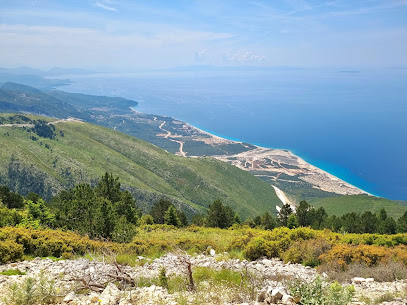
Lungomare
Experience the vibrant heart of Vlorë on Lungomare, a scenic promenade offering stunning Adriatic views, dining, and cultural experiences.
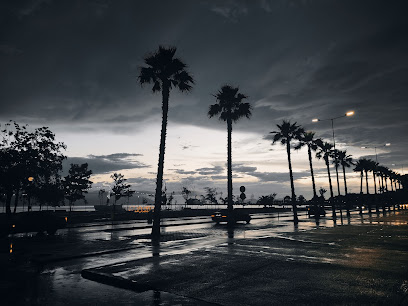
Vlora Boat Trip `3 Fiori`
Explore Vlora's stunning coastline: boat trips to Karaburun, Haxhi Ali Cave, and Sazan Island. Unforgettable Albanian Riviera adventures await!
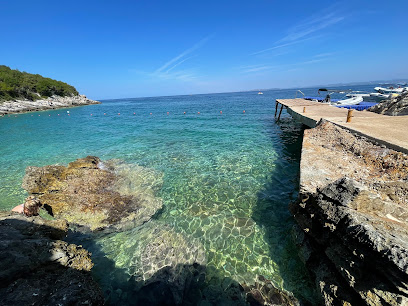
Independence Monument
A towering monument in Vlorë's Flag Square, honoring Albania's declaration of independence and the heroes who shaped its destiny.
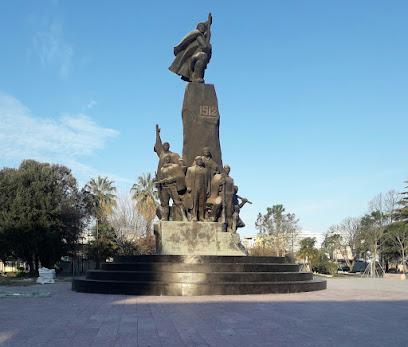
YACHT
Explore Albania's coast from Vlorë Marina, a modern gateway to the Adriatic and Ionian Seas, offering history and natural beauty.
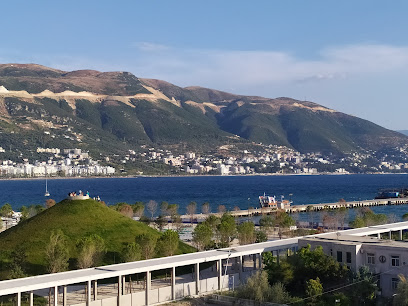
Kanina Castle
Explore Kanina Castle: A historic Albanian fortress offering panoramic views and a glimpse into centuries of captivating history near Vlora.
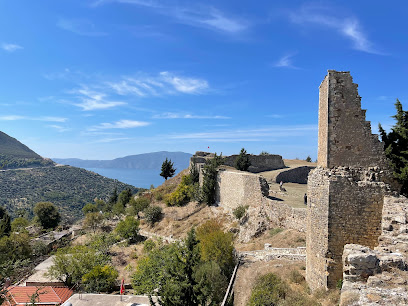
Vlora Old Town
Explore Vlora Old Town: A charming blend of history, culture, and vibrant architecture in the heart of the Albanian Riviera.
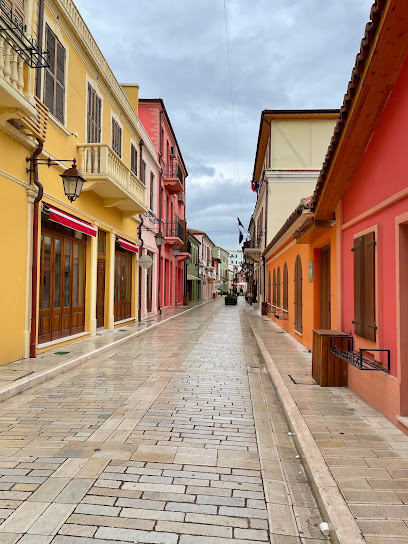
Muradie Mosque
Discover the Muradie Mosque in Vlorë, a cultural monument showcasing Ottoman architecture and the blend of Byzantine and Islamic influences.
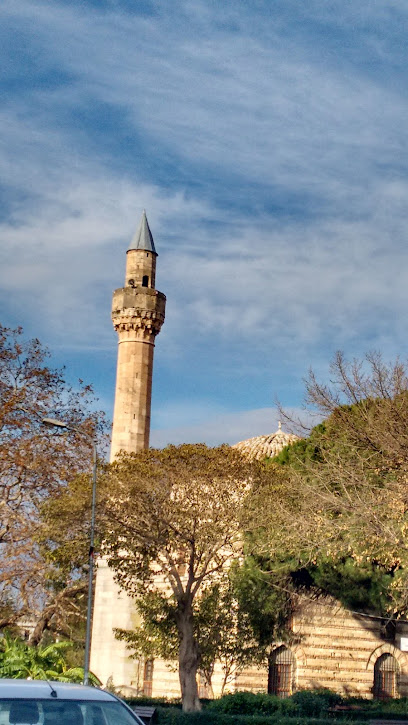
Vjosë-Nartë Delta Protected Area
Discover Albania's Vjosë-Nartë Delta: A biodiversity hotspot with stunning landscapes, perfect for birdwatching and nature exploration.
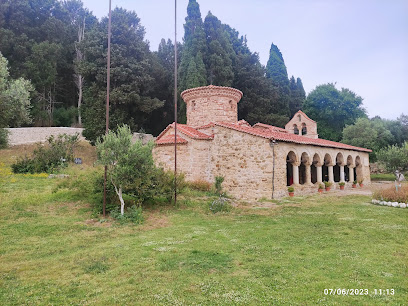
Kuzum Baba
Experience panoramic views and spiritual heritage at Kuzum Baba, Vlorë's iconic hilltop shrine.
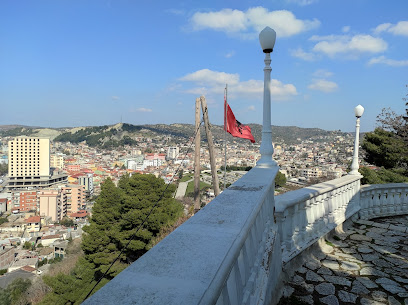
Plazhi i Ri
Experience the vibrant Plazhi i Ri in Vlorë: golden sands, shallow waters, and stunning sunsets along the Albanian Riviera.
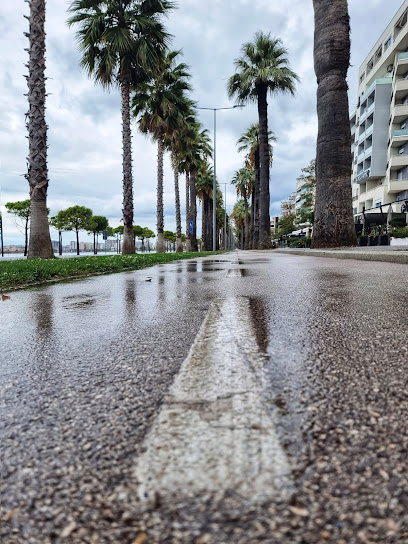
Gjiri i Shën Vasilit
Discover the serene beauty of Gjiri i Shën Vasilit: crystal-clear waters, golden sands, and stunning coastal hikes await near Vlorë, Albania.
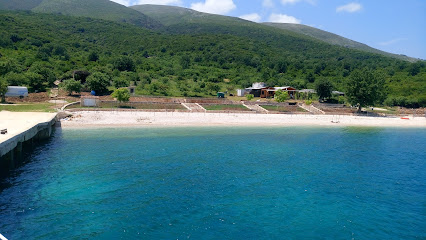
Vlorë City
Escape to Vlorë's green heart: A refreshing park near the sea, perfect for relaxation and recreation in this historic coastal city.
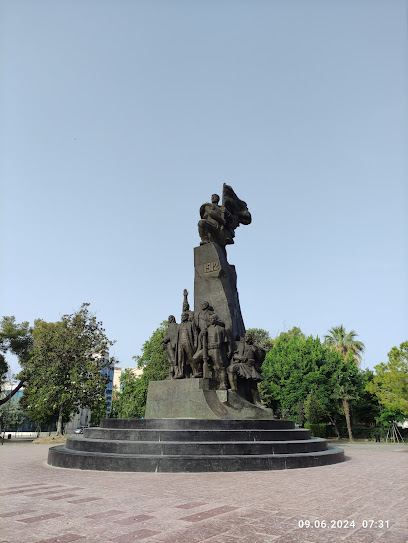
Aulona Luna Park
Experience thrilling rides, classic games, and delicious treats at Vlorë's premier amusement park, perfect for family fun and unforgettable memories.
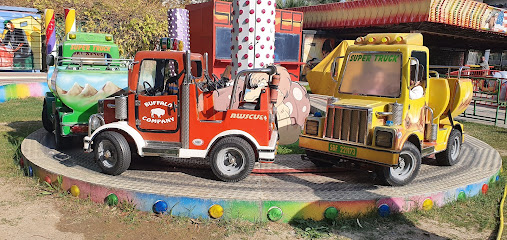
National Museum of Independence
Explore Albania's pivotal history at the National Museum of Independence in Vlorë, where the nation's story began.
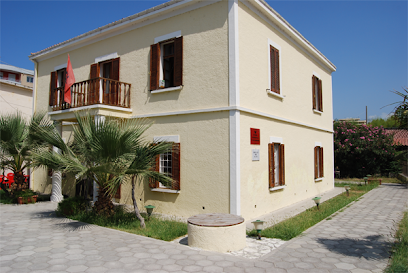
Unmissable attractions to see
Lungomare
Discover the stunning Lungomare promenade in Vlorë, Albania, where breathtaking coastal views meet vibrant local culture and delicious cuisine.
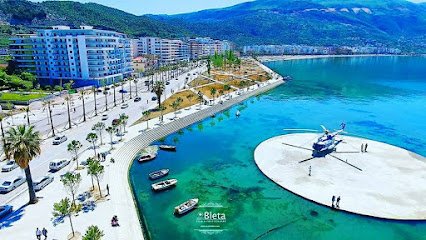
Vlora Boat Trip `3 Fiori`
Explore the Albanian Riviera with Vlora Boat Trip `3 Fiori`: Discover hidden beaches, crystal-clear waters, and stunning coastal landscapes.
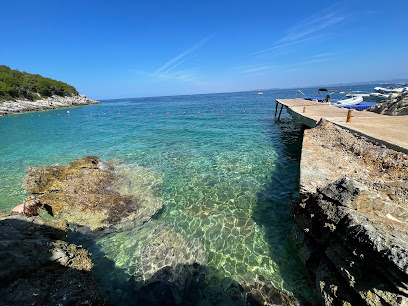
Vjosë-Nartë Delta Protected Area
Discover Albania's Vjosë-Nartë Delta: a haven for birdwatchers, nature lovers, and those seeking tranquil landscapes and outdoor adventures.
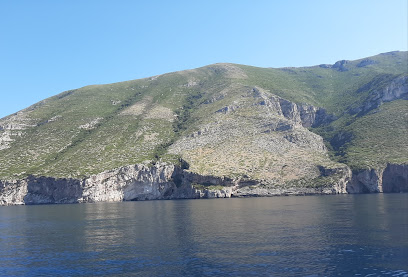
Aulona Luna Park
Experience thrills and family fun at Vlorë's premier amusement destination, offering rides, games, and attractions for all ages!
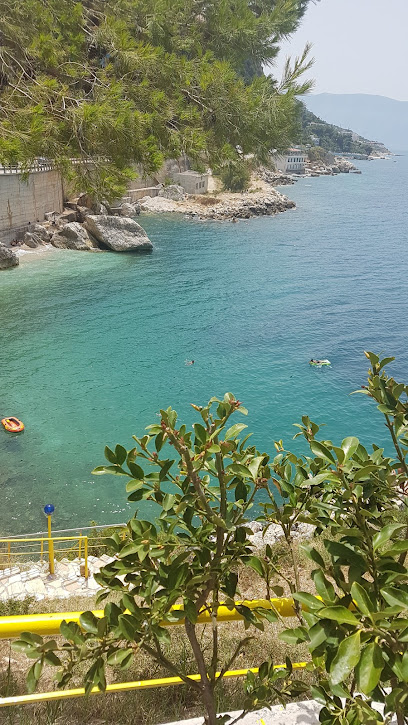
Mount Çika
Hike Albania's Mount Çika for breathtaking Ionian Sea views, challenging trails, and stunning natural beauty along the Albanian Riviera.
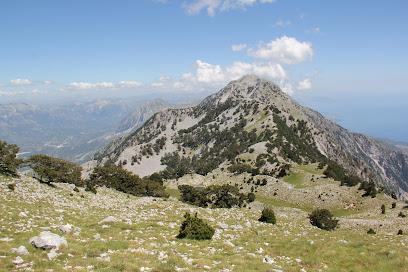
Dalan Beach
Discover Dalan Beach in Albania: Crystal-clear waters, stunning landscapes, and tranquil hiking trails await in this serene coastal paradise.
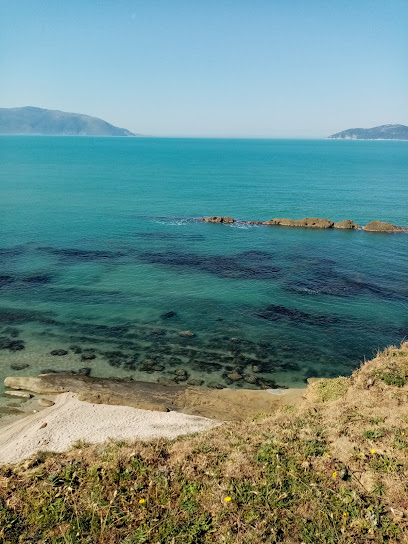
Hidrovor Beach
Discover Hidrovor Beach in Zvërnec: a serene Albanian coastal escape with clear waters, golden sands, and stunning natural beauty near Narta Lagoon.
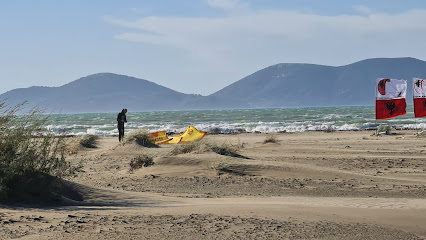
Zvërnec Lighthouse
Discover the beauty of Zvërnec Lighthouse, a coastal gem offering stunning views and a rich maritime history on the Albanian coast.
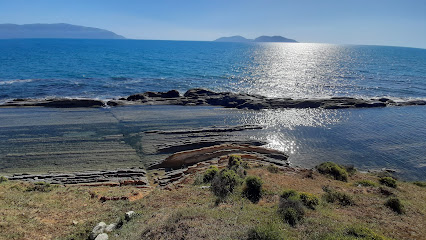
Teuta Boat Tours
Discover Albania's Adriatic coast with Teuta Boat Tours: Explore hidden gems, swim in crystal-clear waters, and create unforgettable memories in Vlorë.
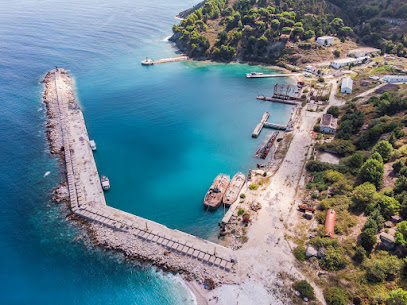
Church of St. Spiridon
Discover the serene Church of St. Spiridon in Berat, a cultural gem with stunning frescoes and a tranquil atmosphere, reflecting Albania's rich heritage.
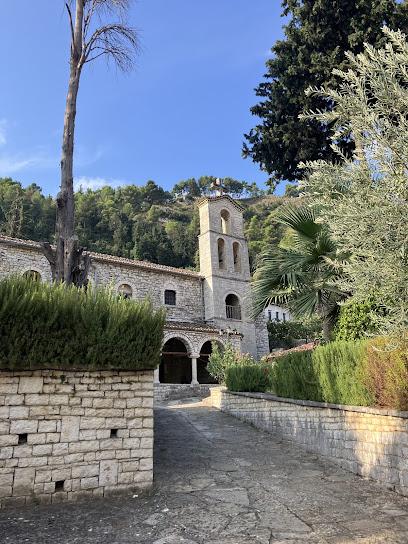
Dafina Bay
Escape to Dafina Bay: Discover crystal-clear waters, golden sands, and serene beauty on Albania's Karaburun Peninsula. Your tranquil coastal retreat awaits!
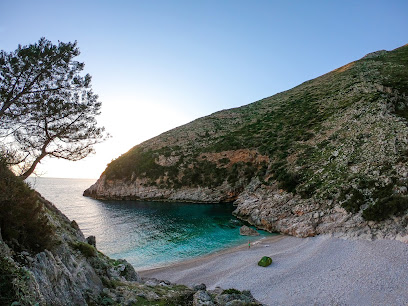
Church of Saint Thomas
Discover the serene beauty of the Church of Saint Thomas in Berat, a mesmerizing blend of Byzantine architecture and Albanian heritage.
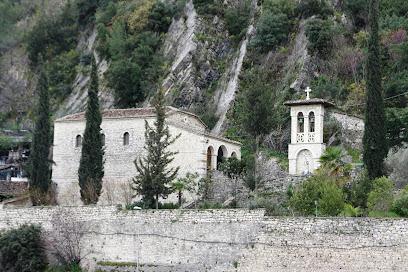
Kantina Vila Hadaj
Experience the authentic taste of Albanian wine culture at Kantina Vila Hadaj in Malinat, surrounded by breathtaking natural beauty.
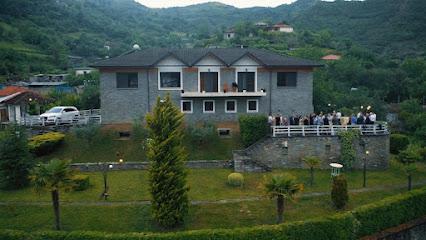
Azar Beach
Escape to Azar Beach in Vlorë: pristine sands, turquoise waters, and serene relaxation on the Albanian Riviera.
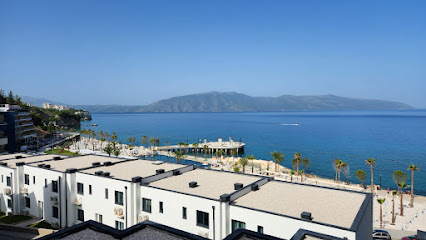
Ferris Wheel Vlorë
Experience Vlorë from above: panoramic views of the Adriatic coastline and city landmarks from the iconic Ferris wheel.
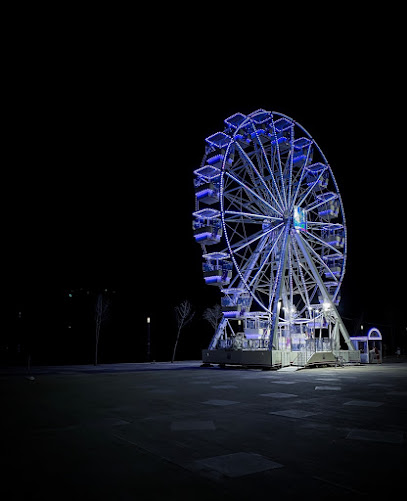
Essential places to dine
Restorant Tradicional VANI
Savor authentic Albanian cuisine at Restorant Tradicional VANI in Vlorë - where tradition meets flavor in every dish.
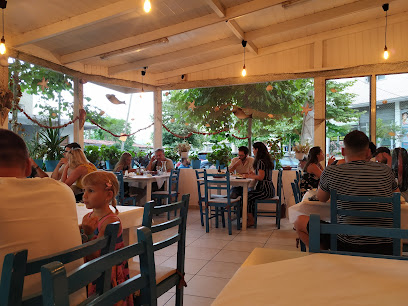
Taverna Te LILO
Discover authentic Albanian flavors at Taverna Te LILO in Vlorë—where every meal tells a story of tradition and freshness.
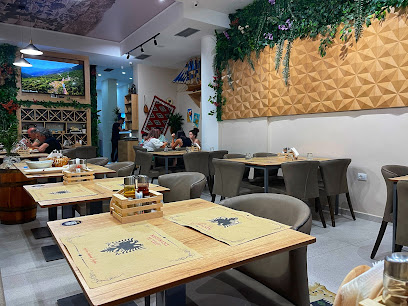
Brooklyn Restaurant
Experience the best of Italian cuisine in Vlorë at Brooklyn Restaurant – where delicious food meets vibrant cocktails.
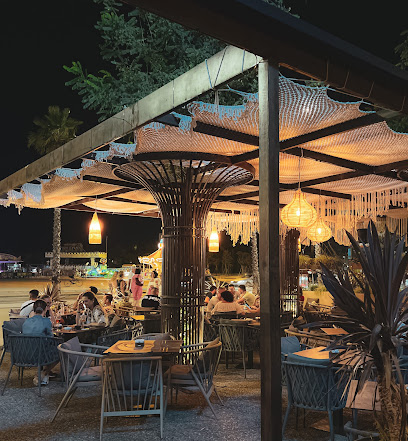
Restorant Joni, Vlorë
Experience authentic Italian flavors in the heart of Vlorë at Restorant Joni – where every dish tells a story.
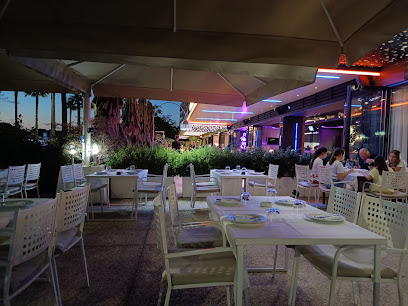
Novus Traditional-Food-Restaurant
Experience authentic Albanian cuisine at Novus Traditional-Food-Restaurant in Vlorë - a culinary journey through rich flavors and warm hospitality.
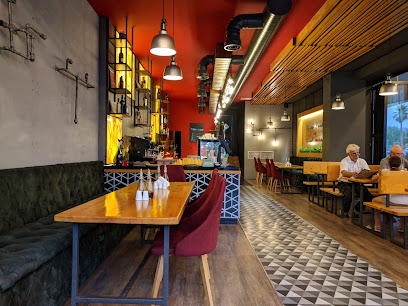
Restorant Titanic
Experience authentic Italian cuisine at Restaurant Titanic in Vlorë – where every meal is a journey through Italy's rich culinary heritage.
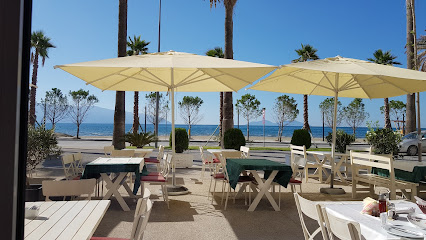
The Wave
Experience the best of Mediterranean cuisine at The Wave in Vlorë—where delicious pizzas meet exquisite wines in a lively atmosphere.
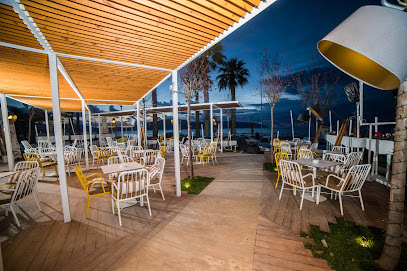
Maison des Chefs
Experience authentic Albanian cuisine at Maison des Chefs in Vlorë—where every dish tells a story.
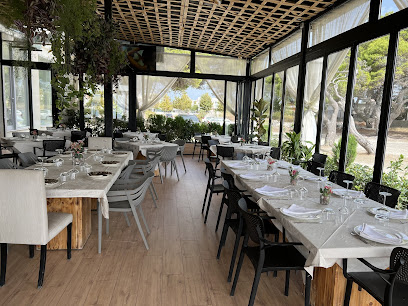
Gaia
Discover Gaia: A premier fish restaurant in Vlorë offering fresh seafood delights and breathtaking views of the Adriatic coast.
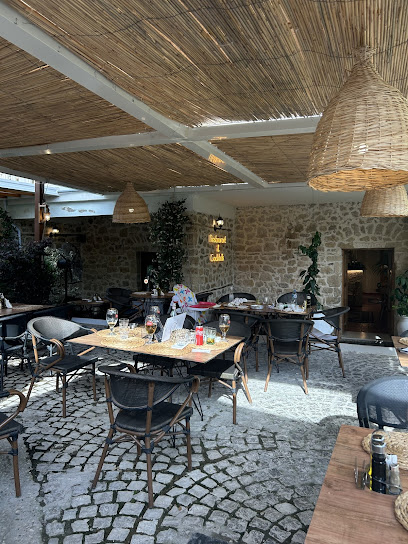
Tre Forchette Restaurant
Experience culinary excellence at Tre Forchette Restaurant in Vlorë with authentic Italian flavors and fresh Mediterranean seafood.
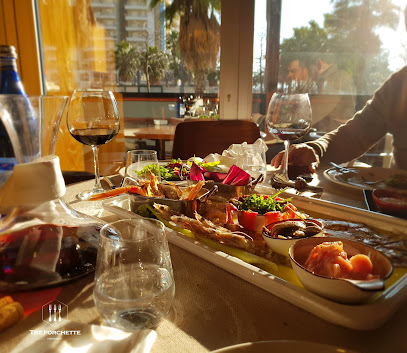
Adriatik Restaurant
Discover delicious Eastern European flavors at Adriatik Restaurant in Vlorë, Albania – a culinary experience not to be missed.
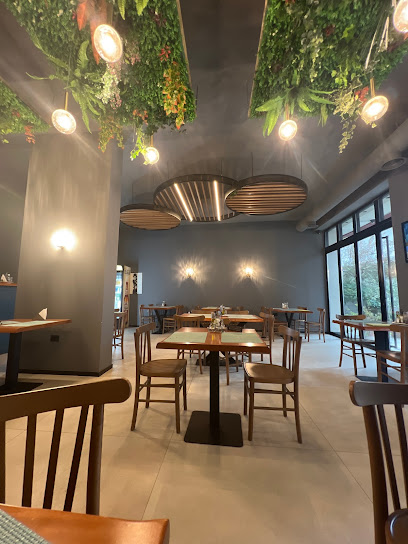
Sofra e Lakrorit
Experience authentic Albanian flavors at Sofra e Lakrorit in Vlorë – a top-rated restaurant serving traditional dishes with fresh local ingredients.
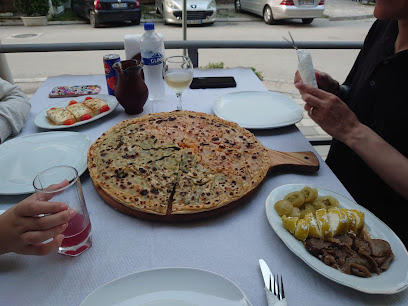
Danté Restaurant
Discover authentic Albanian flavors at Danté Restaurant in Vlorë – where tradition meets modern cuisine for an unforgettable dining experience.
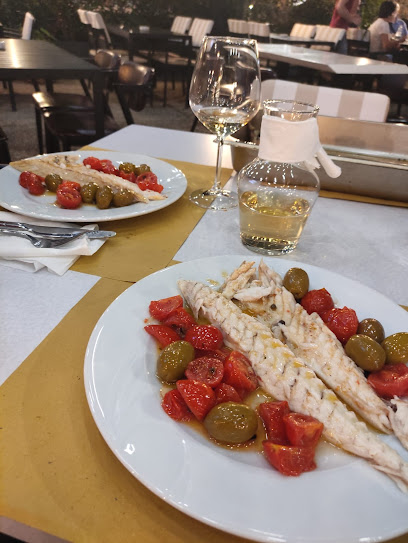
Food Restaurant N'dere t'babait vlore
Discover authentic Albanian flavors at Food Restaurant N'dere t'babait in Vlorë - where every meal is a celebration of taste and tradition.
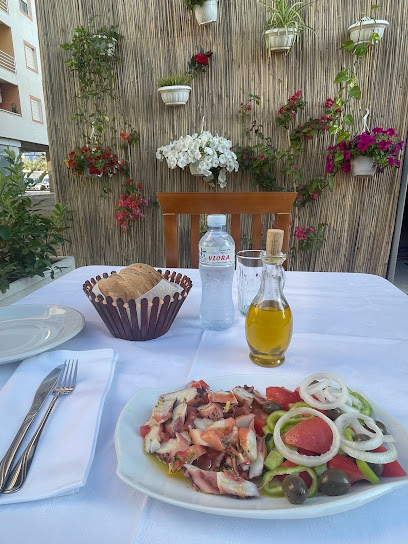
Taverna “Te Saçi”
Discover authentic Albanian cuisine at Taverna “Te Saçi” in Vlorë – where tradition meets taste in every delicious bite.
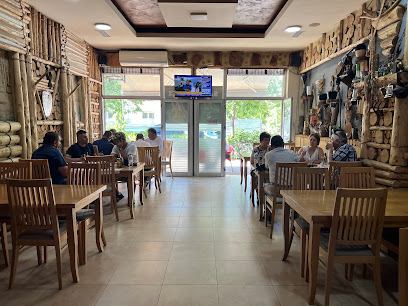
Markets, malls and hidden boutiques
Big Scoop
Experience the best ice cream in Vlorë at Big Scoop, where delightful flavors and a vibrant atmosphere await every visitor.
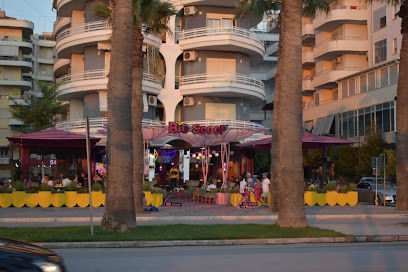
Conad Vlorë
Explore the vibrant selection of local and international foods at Conad Vlorë, the ultimate supermarket experience in Albania.
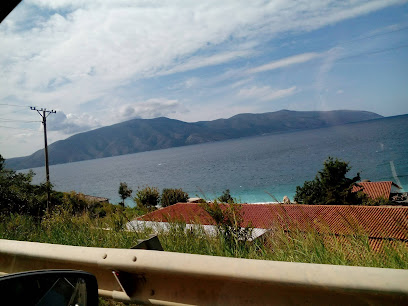
QTU Riviera
Explore QTURiviera, a shopping haven in Vlorë, Albania, offering diverse retail options, delightful dining, and a vibrant atmosphere.
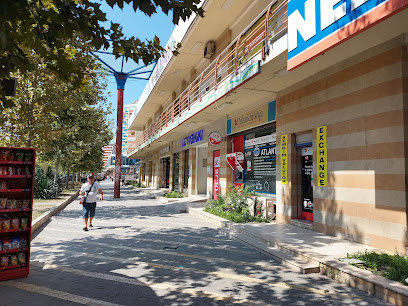
Rossmann & Lala - Vlorë
Explore Rossmann & Lala in Vlorë for an exceptional range of beauty products and unique finds for every traveler.
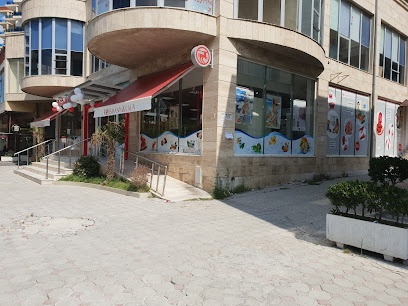
Pet Shop Vlorë
Explore the pet paradise at Pet Shop Vlorë, where every pet lover finds joy with a wide range of supplies and accessories in the heart of Albania.
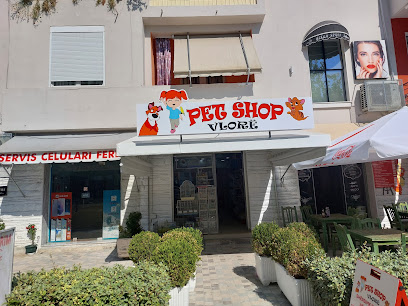
Supermarket Univers
Discover the best of local and international shopping at Supermarket Univers in Vlorë, Albania, your one-stop destination for all necessities.
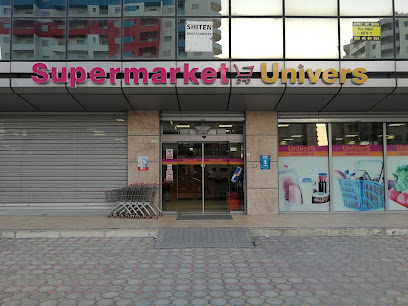
MARKET SONI
Explore the bustling Market Soni in Vlorë, where local flavors, fresh produce, and vibrant culture come together for an unforgettable shopping experience.
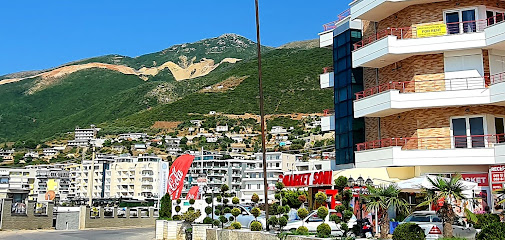
Souvenir Vlora
Discover the charm of Albania at Souvenir Vlora, where unique crafts and local treasures await every traveler.
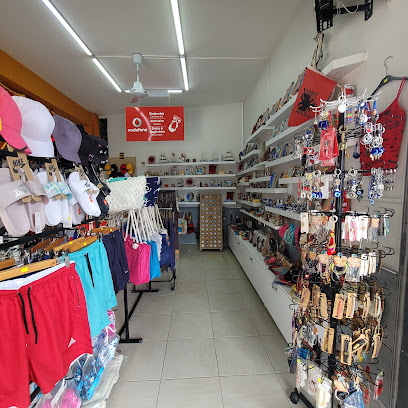
Ok Boutique
Explore Ok Boutique in Vlorë for a unique blend of traditional Albanian craftsmanship and modern fashion trends.
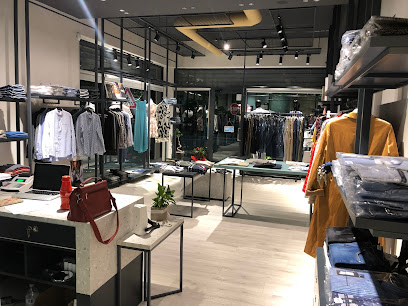
Unic_brand_outlet
Discover stylish fashion at Unic Brand Outlet in Vlorë, Albania, where quality meets affordability in a vibrant shopping atmosphere.
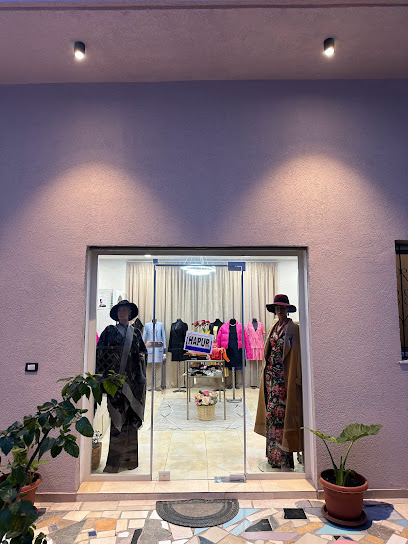
Unic_brand_outlet_vlore
Explore Unic Brand Outlet in Vlorë for stylish dresses and affordable fashion. A perfect shopping stop for tourists in beautiful Albania.
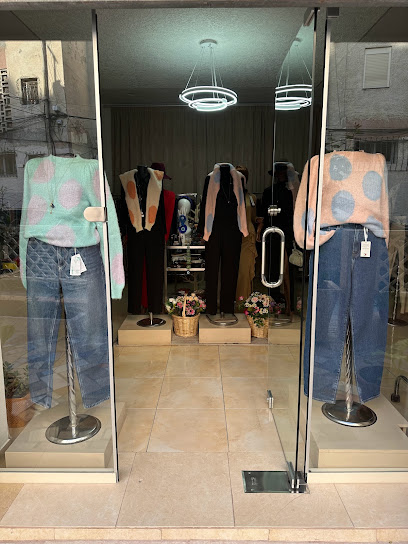
Gift Shop Smile
Explore the charming Gift Shop Smile in Vlorë for unique souvenirs and delightful children's gifts that capture the spirit of Albania.
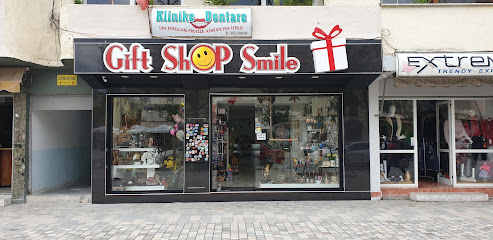
Flo Full of Fashion
Explore unique styles and high-quality fashion at Flo Full of Fashion, the boutique treasure of Vlorë, Albania.
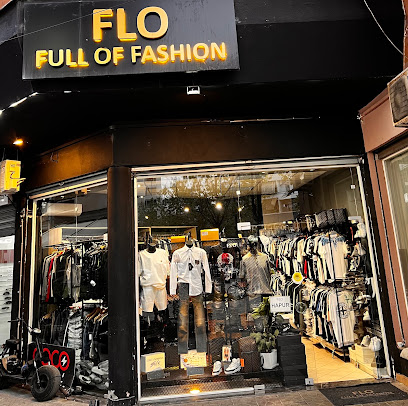
Vironi artikuj te ndryshem (play toys) shumice
Discover the joy of play at Vironi Artikuj te Ndryshem, Vlorë's premier shopping destination for toys and fun.
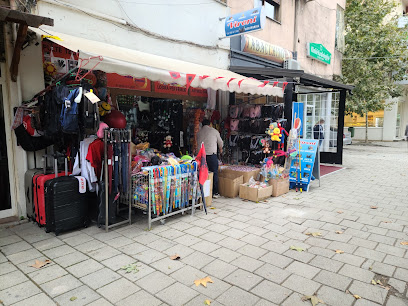
Bloom Room Flowers Shop
Experience the vibrant splendor of nature at Bloom Room Flowers Shop in Vlorë, where exquisite flowers and unique arrangements await every visitor.
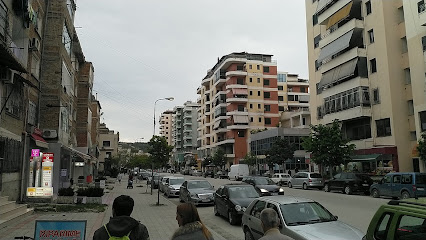
Essential bars & hidden hideouts
Bar Da Vinci
Experience the bustling nightlife at Bar Da Vinci in Vlorë, where great cocktails and live music create an unforgettable atmosphere.
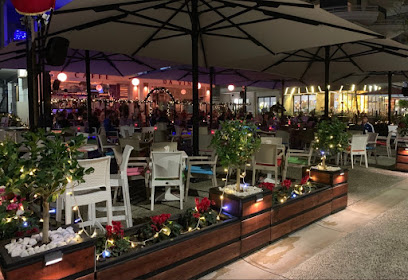
Komiteti Bar - Vlorë
Experience the vibrant nightlife at Komiteti Bar in Vlorë, where traditional Albanian hospitality meets a modern bar scene.
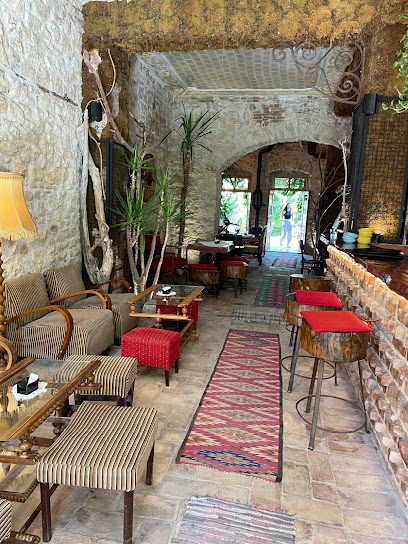
Bar Taushani @ Akademi
Experience the lively ambiance and diverse drink selection at Bar Taushani @ Akademi, a must-visit bar in Vlorë, Albania.
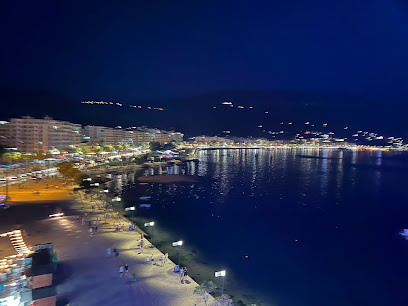
Seasons Cocktail Bar
Experience the vibrant atmosphere and exquisite cocktails at Seasons Cocktail Bar in Vlorë, a must-visit for every traveler exploring Albania's nightlife.
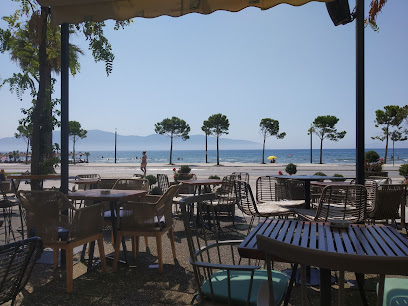
ammos lounge vlore
Discover the vibrant atmosphere of Ammos Lounge in Vlorë, where stunning views meet exceptional service and a lively nightlife experience.
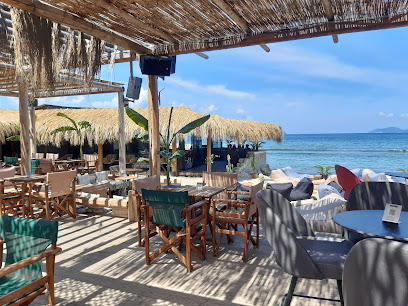
Irish Time Pub
Discover the lively ambiance and authentic Irish experience at Irish Time Pub in Vlorë, where great drinks and live music come together.
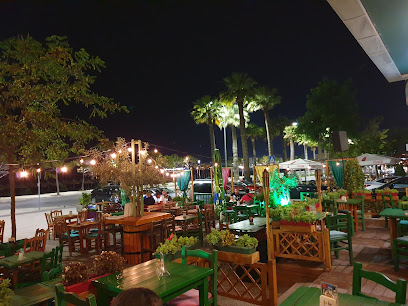
C-Front Lounge Bar
Experience the vibrant nightlife and stunning coastal views at C-Front Lounge Bar in Vlorë, where refreshing drinks meet a lively atmosphere.
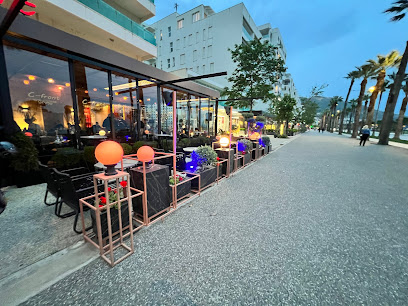
Mangala by WOW Cocktail Bar
Discover the vibrant atmosphere and exquisite cocktails at Mangala by WOW Cocktail Bar in Vlorë, Albania, a must-visit for nightlife enthusiasts.
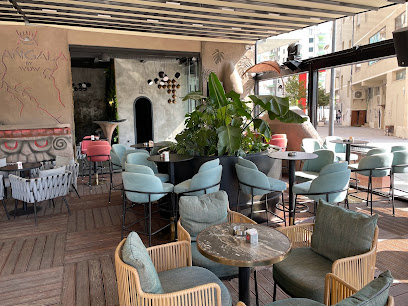
Lime Lounge Cocktail Bar
Discover the vibrant nightlife of Vlorë at Lime Lounge Cocktail Bar, where exquisite cocktails and stunning coastal views await.
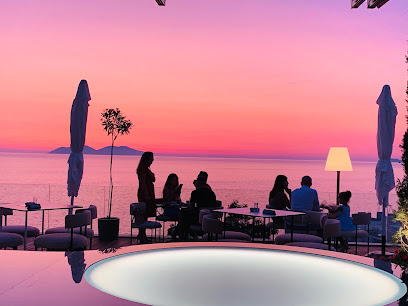
Bar INI
Experience the vibrant culinary scene at Bar INI, Vlorë's favorite spot for delicious food and refreshing drinks amidst a lively atmosphere.
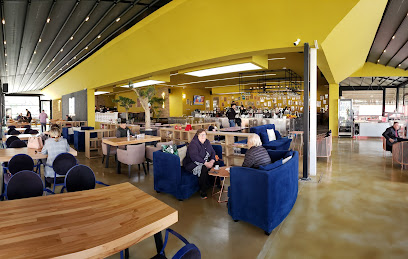
Colosseo Bar
Discover the vibrant Colosseo Bar in Vlorë, Albania, where refreshing drinks and lively ambiance create the perfect getaway for visitors.
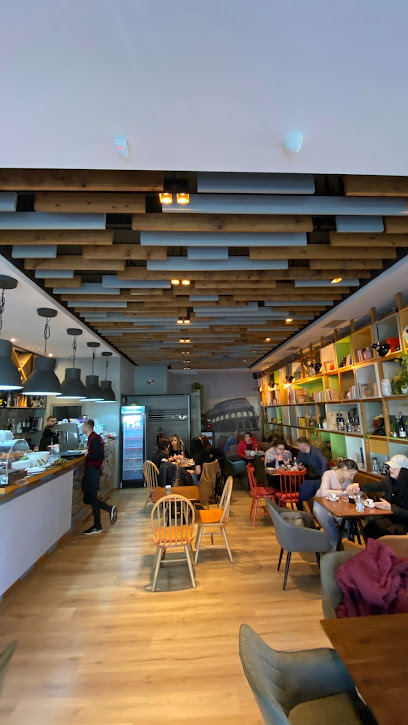
Hannover Bar
Experience the vibrant nightlife at Hannover Bar in Vlorë, Albania, offering a diverse drink selection and an energetic atmosphere perfect for tourists.
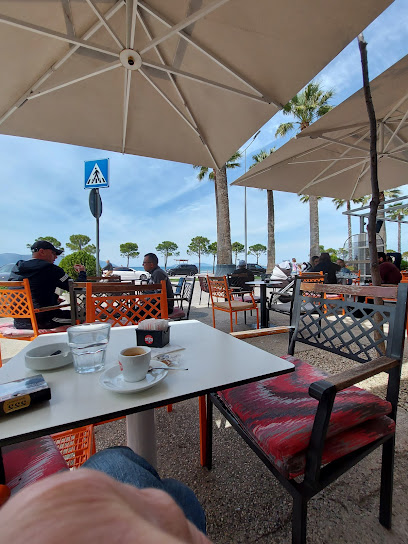
Code Resto Lounge
Discover the lively atmosphere of Code Resto Lounge in Vlorë, where great drinks and stunning views create unforgettable experiences.
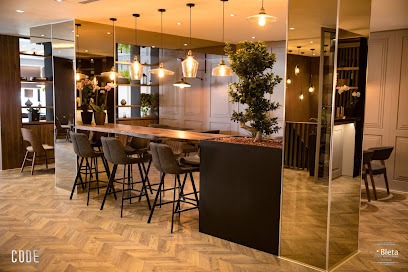
Broadway Lounge
Broadway Lounge in Vlorë: A cocktail haven offering a vibrant atmosphere and innovative drinks for an unforgettable night out.
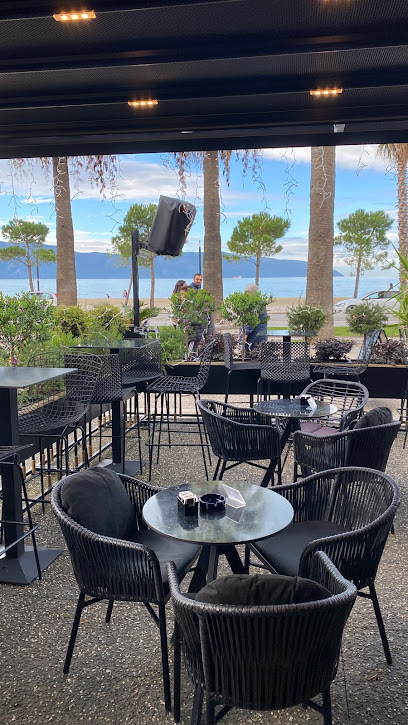
Local Phrases about Vlora Region
-
- HelloPërshëndetje
[puhr-shen-deht-ye] - GoodbyeMirupafshim
[mee-roo-pahf-sheem] - YesPo
[poh] - NoJo
[yoh] - Please/You're welcomeJu lutem
[yoo loo-tehm] - Thank youFaleminderit
[fah-leh-meen-deh-reet] - Excuse me/SorryMë falni
[muh fahl-nee] - How are you?Si jeni?
[see yeh-nee?] - Fine. And you?Mirë. Dhe ju?
[mee-reh. dhe yoo?] - Do you speak English?Flisni anglisht?
[flees-nee ahng-leesht?] - I don't understandNuk kuptoj
[nook koop-toy]
- HelloPërshëndetje
-
- I'd like to see the menu, pleaseDo të doja të shikoja menunë, ju lutem
[doh tuh doh-yah tuh shee-koh-yah meh-noo-nuh, yoo loo-tehm] - I don't eat meatNuk ha mish
[nook hah meesh] - Cheers!Gëzuar!
[geh-zoo-ahr] - I would like to pay, pleaseDo të doja të paguaja, ju lutem
[doh tuh doh-yah tuh pah-gwah-yah, yoo loo-tehm]
- I'd like to see the menu, pleaseDo të doja të shikoja menunë, ju lutem
-
- Help!Ndihmë!
[ndee-muh] - Go away!Shko larg!
[shkoh lahr-g] - Call the Police!Thirrni policin!
[theer-nee poh-lee-tseen] - Call a doctor!Thirrni një doktor!
[theer-nee nyuh dohk-tohr] - I'm lostJam humbur
[yahm hoom-boor] - I'm illJam i sëmurë
[yahm ee suh-moo-ruh]
- Help!Ndihmë!
-
- I'd like to buy...Do të doja të blija...
[doh tuh doh-yah tuh bleeh-yah] - I'm just lookingPo shoh vetëm
[poh shoh veh-tehm] - How much is it?Sa kushton?
[sah koosh-tohn?] - That's too expensiveËshtë shumë e shtrenjtë
[uhsh-teh shoo-muh eh shtreh-ny-teh] - Can you lower the price?A mund ta ulni çmimin?
[ah moon-d tah ool-nee ch-mee-meen?]
- I'd like to buy...Do të doja të blija...
-
- What time is it?Sa është ora?
[sah uhsh-teh oh-rah?] - It's one o'clockËshtë një ora
[uhsh-teh nyuh oh-rah] - Half past (10)Njëzet e gjysmë
[nyuh-zeht eh gyuh-smuh] - MorningMëngjes
[muhng-yes] - AfternoonPasdite
[pahs-dee-teh] - EveningMbrëmje
[mbruhm-yeh] - YesterdayDje
[djeh] - TodaySot
[soht] - TomorrowNesër
[neh-sahr] - 1Një
[nyuh] - 2Dy
[duh] - 3Tre
[treh] - 4Katër
[kah-tuhr] - 5Pesë
[peh-suh] - 6Gjashtë
[gyahsht] - 7Shtatë
[shtah-tuh] - 8Tetë
[teh-tuh] - 9Nëntë
[nuhn-tuh] - 10Dhjetë
[th-yet-uh]
- What time is it?Sa është ora?
-
- Where's a/the...?Ku është një/...?
[koo uhsh-teh nyuh/...?] - What's the address?Cili është adresa?
[chee-lee uhsh-teh ah-dreh-sah?] - Can you show me (on the map)?A mund të ma tregoni (në hartë)?
[ah moon-d tuh mah troh-goh-nee (nuh hahr-tuh)?] - When's the next (bus)?Kur është autobusi tjetër?
[koor uhsh-teh ow-toh-boo-see tye-tehr?] - A ticket (to ....)Një biletë (për ....)
[nyuh bee-leh-tuh (puhr ....)]
- Where's a/the...?Ku është një/...?
History of Vlora Region
-
The Vlora Region, or Vlorë, boasts a rich history dating back to antiquity. The area was originally inhabited by the Illyrians, an ancient Indo-European people. Archaeological findings, such as those at the Orikum and Amantia sites, reveal that the region was a significant hub of Illyrian civilization. These ancient settlements provide a fascinating glimpse into the early development of the region, highlighting its strategic importance and thriving communities.
-
Following the Illyrian period, the Vlora Region fell under Roman rule in the 2nd century BC. The Romans recognized the strategic value of the area, particularly the port city of Aulona (modern-day Vlorë), which became a crucial maritime and commercial center. The remnants of Roman infrastructure, including roads and fortifications, are still evident today. During the Byzantine period, the region continued to flourish, with the construction of significant religious and civic buildings that underscore its enduring importance.
-
The medieval period in the Vlora Region was marked by a series of conflicts and power struggles. The area was contested by various powers, including the Byzantine Empire, the Kingdom of Epirus, and the Normans. The strategic location of Vlorë made it a coveted prize, resulting in numerous battles and sieges. The Castle of Kaninë, perched on a hill overlooking the city, stands as a testament to the tumultuous medieval history of the region and offers panoramic views of the surrounding landscape.
-
The Vlora Region came under Ottoman control in the late 15th century following the fall of the Albanian national hero Skanderbeg. The Ottomans recognized the strategic significance of Vlorë and fortified the city, transforming it into a major naval base. This period saw the construction of important architectural landmarks, such as the Muradie Mosque, built by the renowned architect Sinan. The Ottoman influence is still evident in the region’s architecture, culture, and cuisine.
-
Vlorë holds a special place in Albanian history as the cradle of the country's independence. On November 28, 1912, Ismail Qemali declared Albania's independence from the Ottoman Empire in Vlorë, marking the birth of the modern Albanian state. The city is home to the Independence Monument and the Museum of Independence, which celebrate this pivotal moment. The Vlora Region continued to play a significant role throughout the 20th century, including during the turbulent years of World War II and the communist era, shaping the cultural and political landscape of modern Albania.
-
Beyond its historical significance, the Vlora Region is renowned for its stunning natural beauty and vibrant culture. The area features a diverse landscape, from the pristine beaches of the Albanian Riviera to the rugged mountains and verdant valleys. Traditional music, dance, and festivals, such as the annual Vlorë Summer Festival, reflect the rich cultural heritage of the region. The combination of historical depth and natural splendor makes the Vlora Region a captivating destination for travelers seeking both adventure and enlightenment.
Vlora Region Essentials
-
Vlora Region is accessible through several means. The nearest international airport is Tirana International Airport (TIA), located approximately 140 kilometers north of Vlora city. From TIA, you can take a bus, taxi, or rent a car to reach Vlora, with the journey taking around 2 to 3 hours. Additionally, there are ferry services from Italy to the port of Vlora, which is a popular option for travelers coming from Italy or other parts of Europe.
-
Within the Vlora Region, public transportation includes buses and minibuses (furgons) that connect various towns and villages. Taxis are readily available but always agree on a fare before starting your journey. Renting a car is also a convenient option for exploring the region at your own pace. For a local experience, consider renting a bicycle to explore the coastal areas and enjoy the scenic views.
-
The official currency in Albania is the Albanian Lek (ALL). Credit cards are accepted in many hotels, restaurants, and larger shops, but it is advisable to carry cash, especially in smaller establishments and rural areas. ATMs are widely available in Vlora city, but it is wise to withdraw enough cash before traveling to more remote areas.
-
Vlora Region is generally safe for tourists. However, as with any travel destination, it is advisable to take standard precautions. Avoid walking alone at night in unfamiliar areas and keep an eye on your belongings in crowded places. While there are no specific high-crime areas targeting tourists, it is always best to stay vigilant and aware of your surroundings.
-
In case of emergency, dial 112 for immediate assistance. This is the general emergency number in Albania. The local police station and medical facilities are available in Vlora city. It is recommended to have travel insurance that covers medical emergencies. For minor health issues, there are pharmacies in the town where you can purchase over-the-counter medications.
-
Fashion: Do dress modestly, especially when visiting religious sites. Avoid wearing overly revealing clothing. Religion: Do respect local customs and traditions. Always cover your head when entering churches and monasteries. Public Transport: Do be respectful and give up your seat to elderly passengers. Don't eat or drink on public transport. Greetings: Do greet people with a handshake. A slight bow of the head is also a sign of respect. Eating & Drinking: Do try local delicacies and accept food offerings graciously. Don’t refuse hospitality, as it is considered impolite.
-
To experience Vlora Region like a local, visit the local markets where you can buy fresh produce and traditional Albanian goods. Engage with locals, as they are often friendly and willing to share stories about the region's history and culture. Don’t miss visiting the ancient ruins of Apollonia, the Llogara Pass for breathtaking views, and the beaches of the Albanian Riviera. For a unique experience, try the local seafood and raki (a traditional Albanian spirit).
Trending Landmarks in Vlora Region
Nearby Cities to Vlora Region
-
Things To Do in Patos
-
Things To Do in Berat
-
Things To Do in Tepelenë
-
Things To Do in Gjirokastër
-
Things To Do in Kavajë
-
Things To Do in Saranda
-
Things To Do in Durres
-
Things To Do in Tirana
-
Things To Do in Corfu
-
Things To Do in Pogradec
-
Things To Do in Krujë
-
Things To Do in Ioannina
-
Things To Do in Lezhë
-
Things To Do in Ulcinj
-
Things To Do in Bar













